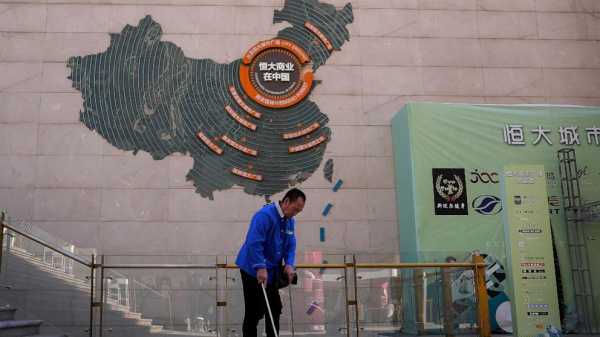
BEIJING — A Chinese real estate developer whose struggle to manage more than $300 billion in debt rattled global financial markets announced a long-awaited plan Thursday to restructure what it owes to foreign bondholders.
The Evergrande Group, the global real estate industry's most heavily indebted company, ran short of cash after Beijing tightened controls on corporate debt the ruling Communist Party worries is dangerously high. Some other Chinese developers collapsed, leaving half-finished apartment blocks standing empty.
Evergrande’s struggle prompted fears about possible shockwaves for the global financial system. The Chinese central bank tried to reassure investors, saying its problems could be controlled and were unlikely to spill over.
A deputy central bank governor, Pan Gongsheng, said this month the real estate industry finally was recovering following a wave of defaults. Pan said financing conditions for healthy developers had “improved significantly.”
Evergrande’s plan would cover foreign bondholders who are owed about $20 billion. They would receive new bonds and other debt linked to two Evergrande subsidiaries that make electric cars and manage real estate. It wasn't clear how much bondholders might lose compared with a full payout under the original terms.
The proposed terms are a “substantial positive milestone in achieving the restructuring” and represent “significant progress,” the company said in a statement through the Hong Kong stock exchange. It said investors would be asked for approval by the end of March.
The announcement comes at a time when Chinese leaders are trying to revive economic growth that fell to 3% last year, its second-lowest level since the 1970s. The ruling party set an official growth target of “around 5.5%” for this year.
Chinese regulators stepped in to supervise Evergrande’s debt restructuring, but economists said they rejected a bailout to avoid sending the wrong message to companies about the need to reduce their debts.
Foreign creditors were left guessing whether they would receive anything after the company missed two earlier deadlines to announce repayment terms.
China’s economic growth slid in mid-2021 after Evergrande and other heavily indebted developers were blocked from borrowing more money. That added to disruption from anti-virus controls.
Local governments took over some unfinished projects to make sure families got apartments that already were paid for.
Evergrande reported 2.3 trillion yuan ($330 billion) in assets, or more than its 2.1 trillion yuan ($305 billion) in debt to banks and bondholders. But the company said it was struggling to convert that into cash to repay lenders.
Sourse: abcnews.go.com






